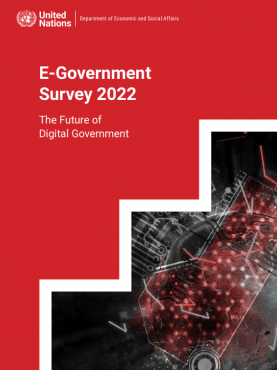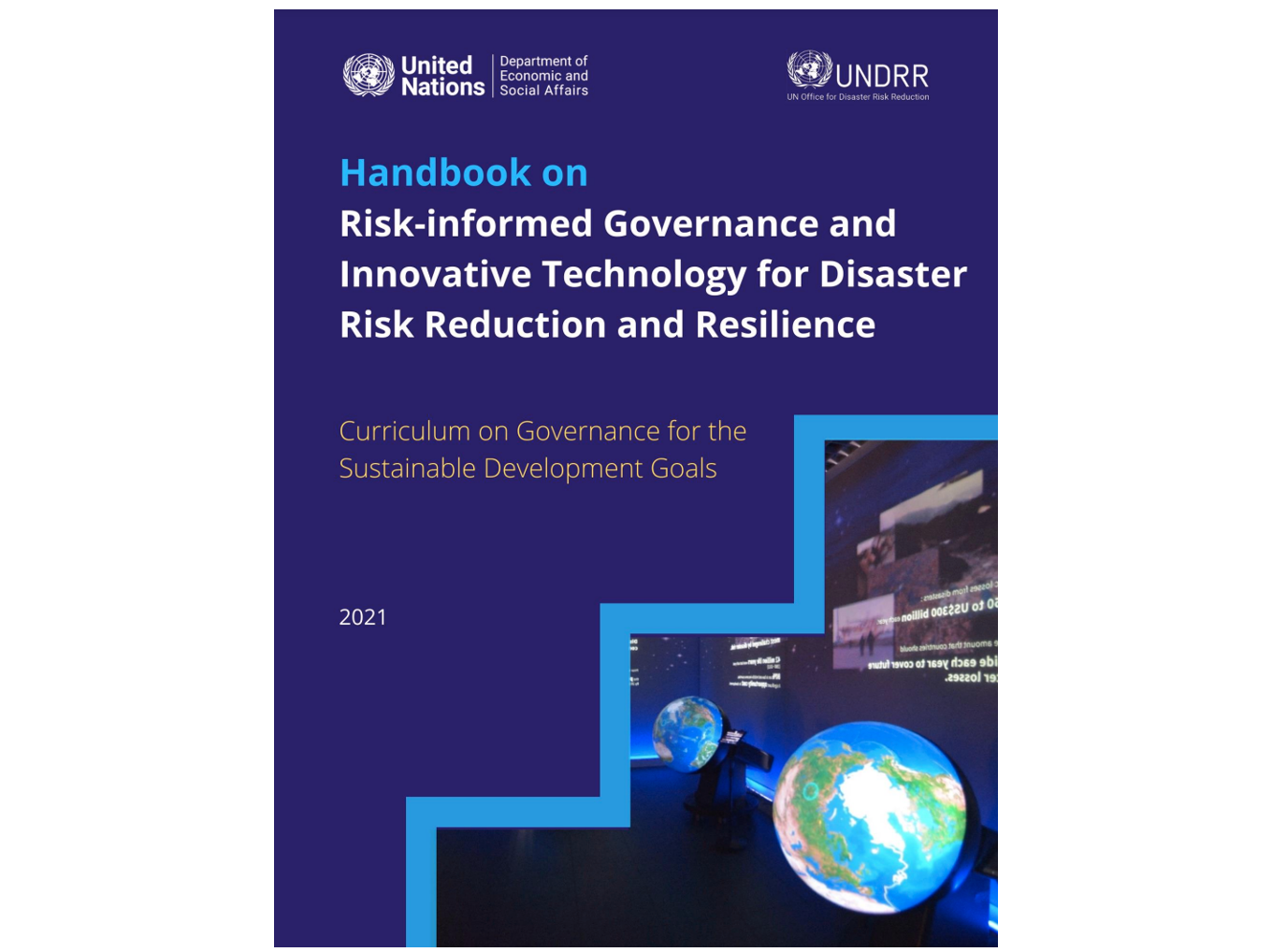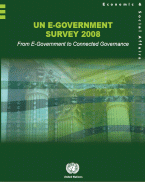| UN E-Government Surveys | Digital Government
UN E-Government Survey 2022
The United Nations E-Government Survey 2022 is the 12th edition of the United Nations’ assessment of the digital government landscape across all 193 Member States. The E-Government Survey is informed by over two decades of longitudinal research,…
| Handbooks | Digital Government | Public Service Innovation
Handbook on how to design and implement One-stop-Shops to promote better service delivery and implement the Sustainable Development Goals
This Handbook, prepared by UN DESA/DPIDG, provides local and national governments with a set of conceptual approaches, practical strategies, and tools to improve the delivery of public services through citizen centric One-stop-Shops (OSS). It…
| Handbooks | Digital Government | Public Service Innovation
Handbook on Risk-informed Governance and Innovative Technology for Disaster Risk Reduction and Resilience
This Handbook is developed based on the Traning of Trainer Toolkit on Risk-informed Governance and Innovative Technology for Disaster Risk Reduction (DRR) and Resilience. The overall learning outcome of this training toolkit is to meet the…
| Handbooks | Digital Government
Digital Government Capability Assessment
The Digital Government Capability Assessment (DGCA) is a six-dimension framework of enablers to engage governments in discussions towards digital government transformation. Considering that digital government requires a multifaceted response from…
| Expert Group Meeting Reports | Digital Government | Participation and Accountability
Report of the Expert Group Meeting on E-Procurement: Towards Transparency and Efficiency in Public Service Delivery
This is a concept paper prepared in response to the demand from United Nations Member States in understanding the challenges, potential and available options in improving or developing E-Procurement systems.
This paper is based on a series of…
| Expert Group Meeting Reports | Digital Government
Report of the Expert Group Meeting on E-Government Survey: Getting to the Next Level
The United Nations E-Government Survey is one of the major recurrent flagship publications of the Division for Public Administration and Development Management (DPADM) of the United Nations Department of Economic and Social Affairs (UNDESA). It has…
| UN E-Government Surveys | Digital Government
From E-Government to Connected Governance
From E-Government to Connected Governance
The UN E-Government Survey 2008: From E-Government to Connected Governance assesses the E-Government Development of the 192 Member States of the UN according to a quantitative composite index of e-readiness…
| UN E-Government Surveys | World Public Sector Reports | Digital Government
World Public Sector Report 2003
E-Government at the CrossroadsThe World Public Sector Report 2003 presents a view of e-government as a tool for creating public value. It puts e-government development in the context of the United Nations Millennium Declaration, the Report claims…
 欢迎来到联合国,您的世界!
欢迎来到联合国,您的世界!





